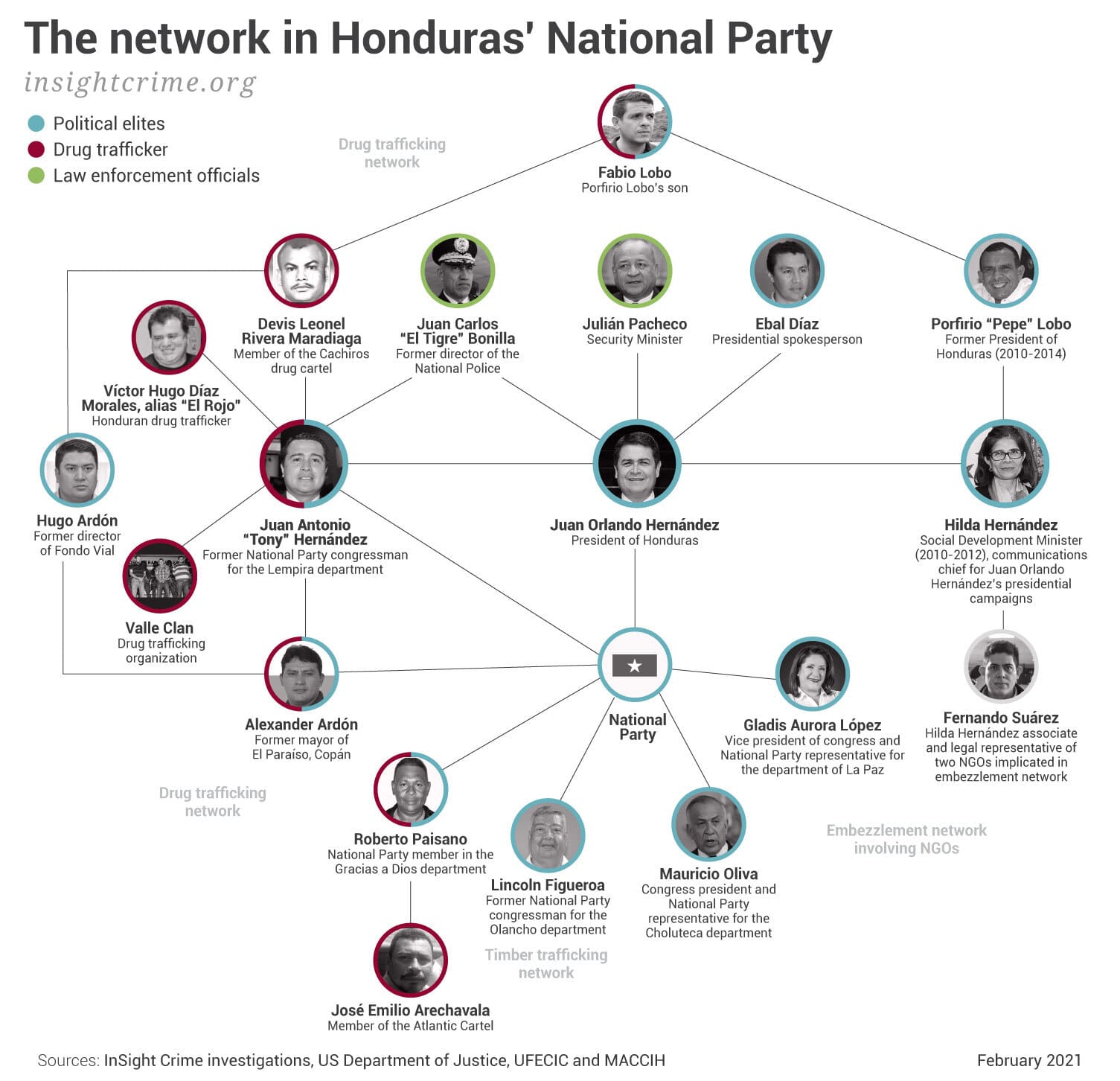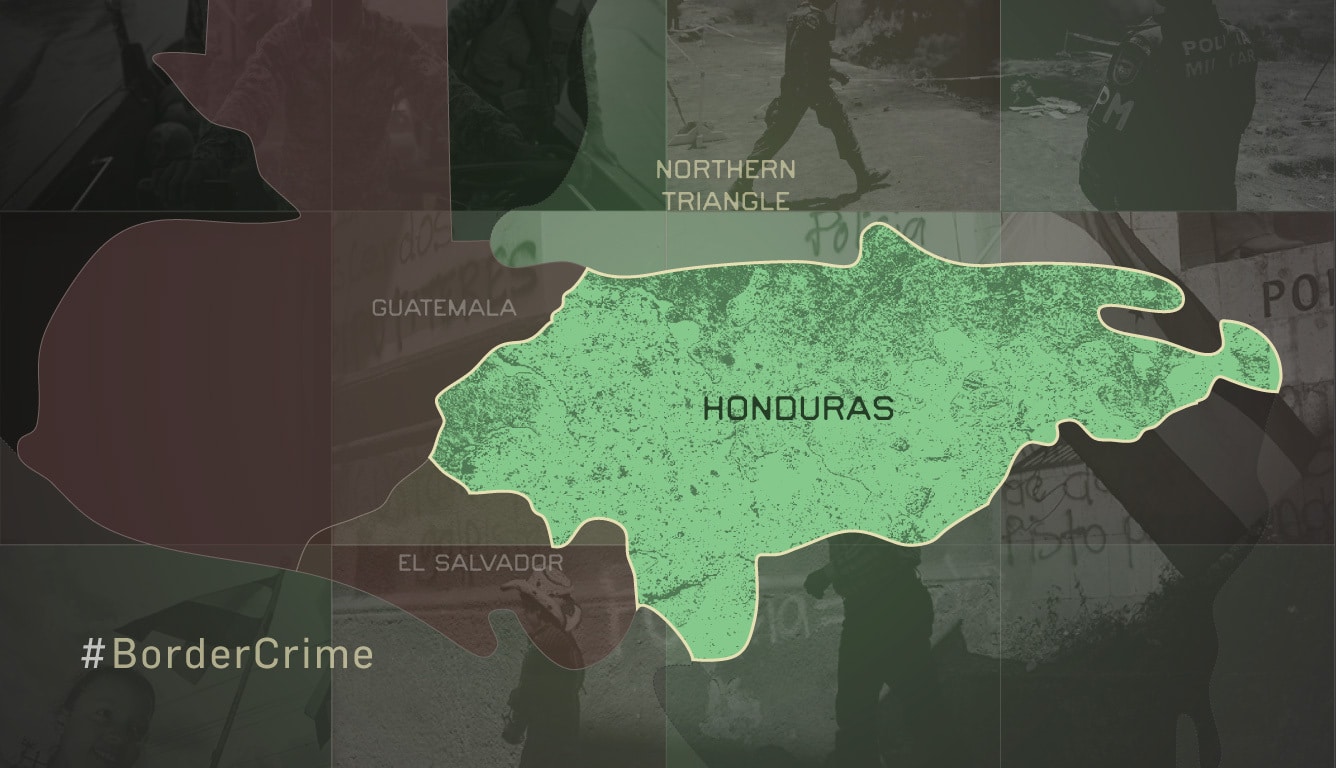Following the capture of some of its biggest criminal names, organized crime in Honduras has gone through a metamorphosis that has opened the door to ambitious politicians and gangs alike.
InSight Crime tracked these changes during a two-year investigation, which included visits to eight Honduran border departments and culminated in a public event outlining our findings.
Below are the three main takeaways from InSight’s Crime’s investigation:
Honduras is Central America’s Cocaine Epicenter
At least 120 tons of cocaine passed through Honduras in 2019, according to the US State Department. Based on this and additional research, InSight Crime estimates that annual cocaine revenues easily reach into the hundreds of millions of dollars, rivaling any Honduran export.
Most cocaine entering Honduras comes by air, with the remote jungle region of La Mosquitia on the country’s Atlantic coast serving as the main runway for South American drug flights. Venezuela appears to be increasingly a launching pad for flights. Land routes that connect the Atlantic coast to the border with Guatemala have also been revived to move the influx of cocaine.
Smuggling, however, is no longer controlled by Honduras’ major drug clans. Their dismantling in recent years left the door open for vestiges of these and other small networks — many with local political ties — to enter the trade.
In the western departments of Copán and Ocotepeque, once a stronghold for the notorious Valle cartel, increased competition between smaller groups has brought with it a spike in drug violence and killings.
SEE ALSO: Border Crime: The Northern Triangle and the Tri-Border Area
Trafficking groups in Honduras are also apparently branching into cocaine production. Authorities in Honduras seized 40,000 coca plants in 2019, a jump from the 5,000 destroyed in 2018. Authorities have also dismantled makeshift cocaine-processing camps.
Honduras appears to still be in the early stages of local cocaine production. But a homegrown product will remain an attractive endeavor to traffickers, given the possibility to reduce costs and shorten supply chains.
Cortés: Organized Crime in All its Forms
InSight Crime’s investigation singled out the Cortés department as an epicenter for organized crime in all its forms.
The department lies on Honduras’ porous western border with Guatemala and is home to the country’s main shipping port, Puerto Cortés, and financial hub, San Pedro Sula.
In Cortés, the country’s main smuggling routes converge with a range of other illicit economies, including extortion, money laundering, migrant smuggling, and sex trafficking.

The department is also the center of gang activity in Honduras. The violent MS13 and Barrio 18 street gangs are entrenched in neighborhoods around San Pedro Sula. The gangs typically run extortion rackets but lately have moved on to operate drug and sex trafficking rings. In some urban areas, the MS13 now dominates local marijuana distribution and charges rent to dealers operating in its territories.
The Marriage of Politics and Organized Crime
Ties between Honduras’ ruling National Party and the country’s underworld have deepened under the leadership of current President Juan Orlando Hernández, according to an InSight Crime investigation.
The party’s criminal ties predated the president’s arrival in 2014. But members of Hernández’s family — which includes not only his drug trafficking brother Tony but also his sister Hilda — have fused politics and organized crime.
Hilda Hernández, who died in 2017 in a helicopter crash, created a network of non-governmental organizations and front companies through which she allegedly embezzled government funds. Juan Antonio “Tony” Hernández was found guilty of smuggling tons of drugs to the United States in 2019.
SEE ALSO: One Party, Many Crimes: The Case of Honduras’ National Party
In several court filings, US prosecutors have also named President Hernández as a co-conspirator in his brother’s cocaine trafficking ring. However, the president has never faced criminal charges himself, and he has continuously denied any connection to the drug trade.
The National Party’s criminal ties also reach down to the local level throughout the country, including between party officials and drug traffickers on the western border and the Atlantic coast.

Overall, Honduras shows the highest levels of criminal infiltration of political institutions of any Central American nation, according to InSight Crime’s findings.
Yet Honduras has long been labeled a staunch regional ally of the United States in attacking drug trafficking in the region. The administration of former US President Donald Trump treated it as such, despite repeated drug trafficking allegations against President Hernández by US prosecutors. In recent years the United States’ diplomatic and justice arms have appeared to be operating on separate planes when it comes to Honduras. President Joe Biden’s new administration will have to decide whether and when that divide is no longer tenable.


